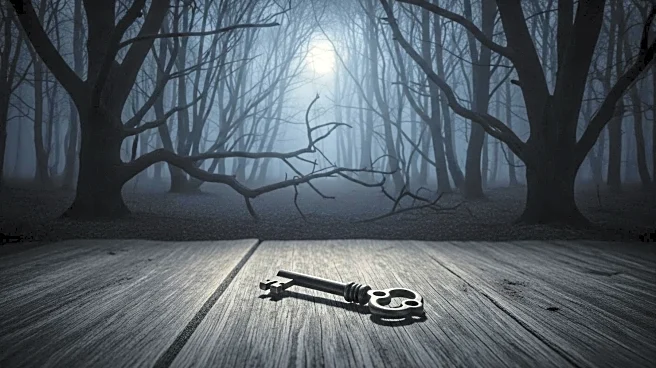What is the story about?
What's Happening?
Netflix has unveiled the release date and first-look images for 'Monster: The Ed Gein Story,' the third installment in Ryan Murphy and Ian Brennan's crime anthology series. The series is set to premiere globally on October 3. Charlie Hunnam stars as the infamous serial killer Ed Gein, whose gruesome crimes in 1950s Wisconsin inspired numerous horror films. The series explores Gein's life as a recluse on a decaying farm, driven by psychosis and an obsession with his mother. The cast includes Tom Hollander, Laurie Metcalf, and others. Murphy and Brennan serve as executive producers, with Brennan also writing and directing episodes.
Why It's Important?
The release of 'Monster: The Ed Gein Story' highlights Netflix's continued investment in true crime narratives, which have proven popular among viewers. Ed Gein's story has had a lasting impact on American culture, influencing horror films like 'Psycho' and 'The Texas Chain Saw Massacre.' This series could further cement Gein's legacy in the horror genre and attract audiences interested in psychological thrillers. The involvement of high-profile actors and producers suggests a significant production that may draw critical attention and potentially influence future crime series.
What's Next?
Following the release of 'Monster: The Ed Gein Story,' Netflix plans to continue the anthology series with a fourth season focusing on Lizzie Borden. This indicates a sustained interest in historical crime stories, potentially leading to more seasons exploring other infamous figures. The success of this installment could impact Netflix's programming strategy, encouraging more content in the true crime genre. Viewer reception and critical reviews will likely influence the direction of future projects within the series.
Beyond the Headlines
The portrayal of Ed Gein in 'Monster: The Ed Gein Story' may spark discussions about the ethical implications of dramatizing real-life crimes. The series could contribute to ongoing debates about the fascination with criminal minds and the potential glorification of violent acts. Additionally, it may prompt cultural reflections on how horror narratives shape societal perceptions of crime and deviance.
















